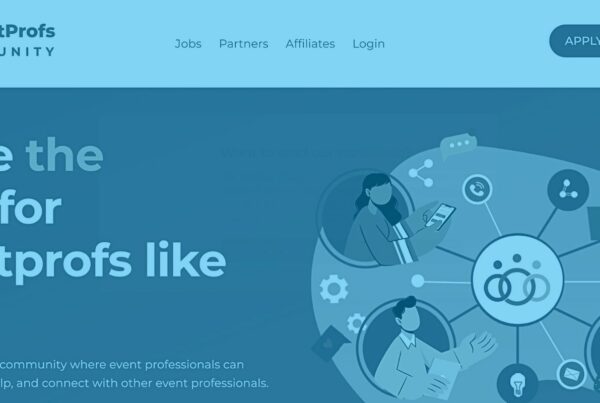Data privacy is a topic we’ve covered several times on the show. Because now more than ever, people everywhere are concerned about the safety of their personal information. Over the past few years, several tech companies found themselves under fire due to this issue. And governments and companies all around the world have begun to implement several measures to ensure that data privacy finally becomes a reality.
So today, we’re talking about the “Mind Your Own Business” Act. Whether you’ve heard it about or not, this is definitely an episode you want to pay close attention to. And especially if data privacy is something that you worry about! So, without further ado, our amazing hosts Will Curran and Brandt Krueger are ready to walk you through it. Press play, it’s time to get techy!
Click here for the full audio transcription.
 Data Privacy – It’s A Thing
Data Privacy – It’s A Thing
“Well, one of the things that we’re seeing, and it’s actually been something that’s been bouncing around for a little while now, we’ve seen drafts of the legislation”, explains Brandt about the new privacy act. “But it was finally being made public. What’s being called the Mind Your Own Business Act, which is basically Congress starting to say, “Tech companies, we’re going to start stepping in.” So obviously we saw Europe have their moment with GDPR regarding privacy and personal data. And your ability to make it go away if you want it to. And most importantly, I think, to come out of GDPR is actual teeth in the legislation for data breaches and things like that. So until you make it painful, people aren’t going to do it”.
What’s The ‘Mind Your Own Business’ Act All About?
“Essentially, the bill would allow the FTC to set minimum privacy and cybersecurity standards for tech companies”, explains Will. “If they do make some sort of breaches if they’re a multibillion-dollar company, 4% of their top-line revenue is charged. Then the next thing is that it makes it a crime for senior execs to lie to the agency regarding privacy standards, and powering state attorneys to enforce regulations. And then also allowing users to opt-out of data tracking, which is very interesting”.
Data Privacy & Minimum Standards
“So FTC, Federal Trade Commission. It’s allowing them to set these minimum price privacy standards, set these cybersecurity standards. And I think by trying to do it that way, it’s going to be able to be a little more flexible. So as we learn new things, as the baseline for what cybersecurity should be evolves and changes, we’ll be able to theoretically move a little bit faster. Faster than trying to push legislation through both the House and the Senate”, says Brandt.
“So right now they’re talking about minimum privacy and cybersecurity standards. Well, for right now that might mean things like email addresses, phone numbers, whatever it may be. But we talk about how fast tech is moving all the time. That could be something new, right? Like maybe it’s biometric data, maybe it’s the understanding of API data. They would be able to change that and keep up with the times, which I think is really important”, adds Will. “I also think the minimum standard, it’s setting a rule base, similar to how GDPR said you have to have the ability for users to opt-out. There have to be checkboxes that say that they’re collecting data. Any time someone goes on a page that is collecting cookie data, it needs to do this”.
Bring On The Fines!
“I like the 4% annual fee because right now there is no standard”, says Will. “So I like that it’s a clear, concise standard. Whether you care about 4% or not. I like that it’s fair across the board and also scales based on the company. Because it’s not fair if, for example, Joe Schmo’s small company loses 100,000 users’ worth of data and then Facebook with millions of users does it and they pay the same actual number amount. But it’s great that scales based on revenue as well, which I actually really like that”.
Liar Liar, Data Privacy On Fire
The State Attorneys are the ones enforcing regulations, hence the ones making sure the new data privacy act pushes forward. “I do like this as well because obviously we’ve talked about how also it depends on a state to state-level”, says Will. Brandt agrees and goes on to add that “You need an enforcement mechanism. And yes, it gets it out a little closer so it’s not someone sitting in an FTC office in DC figuring it out. You’re giving the power to the state AGs to be able to enforce these regulations”.
 How Does Data Privacy Affect You?
How Does Data Privacy Affect You?
“There’s a lot of misconceptions about tracking data. And then there’s a lot of people starting to realize that they’re tracked for absolutely every tiny little thing on the internet”, says Brandt. And this is where the new act comes in – “it gives people the chance to opt-out, say, “I don’t want it”, explains Will.
“I think this is where they start to lose me just a little bit”, says Brandt. “Because I think yes, we absolutely want people to be able to opt-out. But the way that a lot of these companies make money, including Facebook, including Google. Their primary mode of money is advertisements and tracking and being able to sell that data to people. I’m a privacy guy, I like privacy. But at the same time, I also get a tremendous amount of value from Google services, for example”.
Unexpected Consequences & Possible Solutions
“If you can allow people to opt-out, people are no longer the product anymore. And so, therefore, they can’t make money. So now they have to find a new way to make money, which then leads to potential things like now you’re going to pay for Gmail”, explains Will. Here is where Brandt lays out the idea of paid data privacy protected versions.
“You can almost see the thought processes behind this, that we want people to opt-out. But this is how these companies make money. Well, what if we let people pay to opt-out? And then that creates digital haves and have nots. So we’ve got people who can afford it, can opt-out. But people, poor people, we have to suck it up and use these services for free. And you start to get privacy protection fatigue. So now I’m having to pick and choose which services do I want to pay, which services do I get that value from?”
“I believe in regulated commerce to a certain extent”, continues Brandt. “But I get a little twitchy when I start seeing things being broken down based on how much you can pay. This just feels really knee jerk to me”. Will brings up that, all of a sudden, “we put a price on privacy”.
Discussing Internet Access
“So I think there is an argument to be made that internet access maybe should be regulated like a utility. Like lights, like power, like phones, things like that. Because that is becoming something that we need and rely on”, says Brandt. “These companies like Facebook and Google, I think we need to start acting like grownups to a certain extent. And say, if I am cool with it, you got to be cool with it. But let’s try and educate people, educate people on what’s going on so that they know. But Facebook is not a utility. It’s a platform. It’s an important platform just because of the sheer volume of people that are on it and the number of people that are on it. But you don’t need it”.
Data Privacy Act: Final Thoughts
“Some of these are going to get struck down by some people”, says Will. “But I think the important thing too for planners and event professionals who are listening now too is just to know that this stuff is coming down the road. And if you see companies that are doing things improperly, use this as leverage to say, “Look, this is coming soon”.
And Brandt adds that the act “is part of the larger conversation about, as we are hiring event technology companies, registration companies, event apps. Just asking them what their data retention policy is. How long are they keeping stuff? Where are they keeping stuff? At the end of my event, do I get to say “Delete it all” and it’s gone? And if so, how? So having these types of conversations. So as you’re talking to your providers, like I said, ask them for their retention policy. Ask them how long they hang onto the stuff. Do they sell stuff? Read those click ons carefully”.
Conclusions
And that does it for this week’s episode about data privacy and the ‘Mind Your Own Business’ act! If you want to go even deeper on the topic, make sure to check out the resources listed below. Plus, don’t forget to tune in next week for another exciting episode of Event Tech Podcast!
Resources
Senator Wyden pushes his ‘Mind Your Own Business’ privacy act forward
Google IO And Microsoft Build: Exploring The Future Of Technology
How Not Having Data Backups Will Ruin Your Event
The Latest And Greatest Of Cybersecurity In Events: Black Hat and DEF CON 2019










